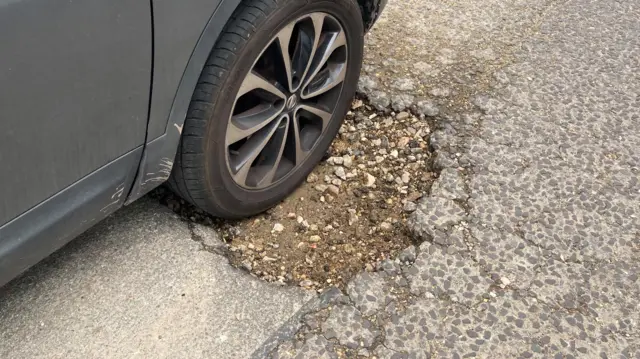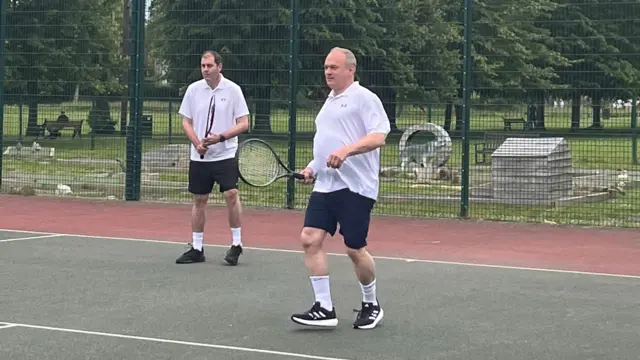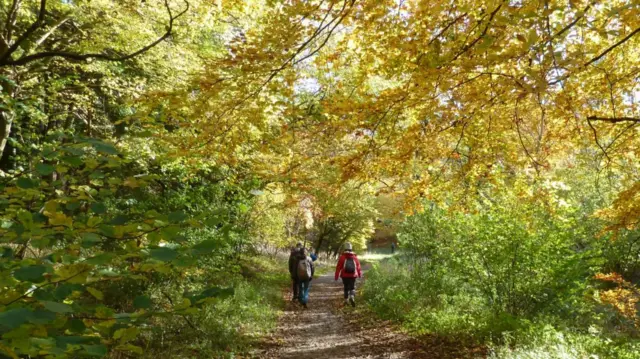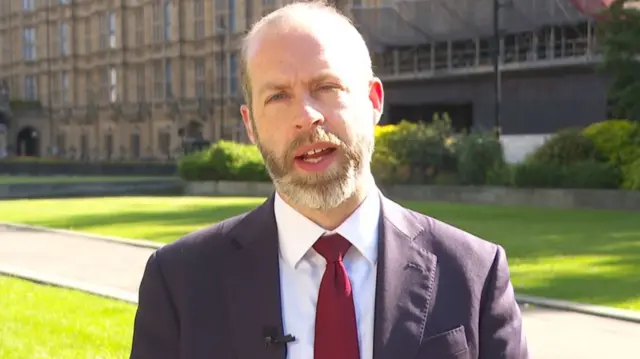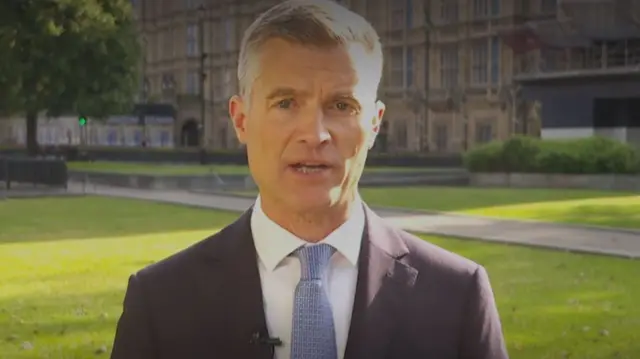PM's D-Day actions a 'letdown for the whole country', says Lib Dems' Daveypublished at 12:12 BST 8 June 2024
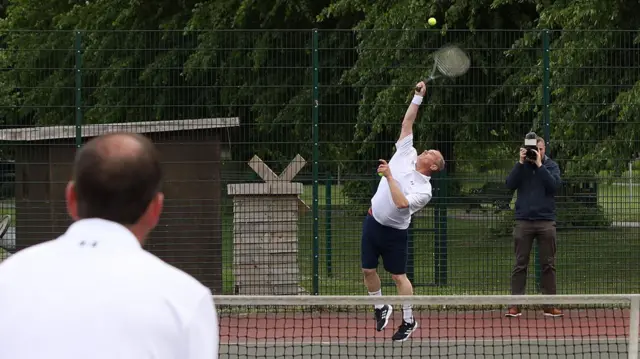 Image source, PA
Image source, PAA photo showing Lib Dem leader Ed Davey playing tennis
A bit more now from Lib Dem leader Ed Davey, who tells broadcasters he was “flabbergasted” and felt "pretty cross" that Rishi Sunak left early from events to mark D-Day in Normandy earlier this week.
He describes the PM's actions as a "letdown for the whole country".
Davey reiterated his party's call that money donated to the Conservative Party by Frank Hester - who was accused of making racist comments about Labour's Diane Abbott earlier in the year - should be given to a veterans' charity.
A reminder: it was disclosed earlier this week that the Conservative Party accepted £5 million from Hester in January - before his comments about Abbott hit the headlines - and that the party accepted a further £150,000 afterwards.
Hester allegedly said in 2019 that veteran MP Diane Abbott made him "want to hate all black women" and should "be shot".
Hester apologised for making "rude" comments about Ms Abbott but said his remarks "had nothing to do with her gender nor colour of skin".
Davey says: “I think the Conservative Party should give £5 million of that donation to a veterans' charity. I think if they did that, then people might be able to draw the line.
“But it’s such a letdown for our whole country and our history, and particularly our brave veterans that I think they've got to do more."
A Conservative spokesperson said earlier this week: "Hester has apologised and shown contrition and we consider the matter resolved."
